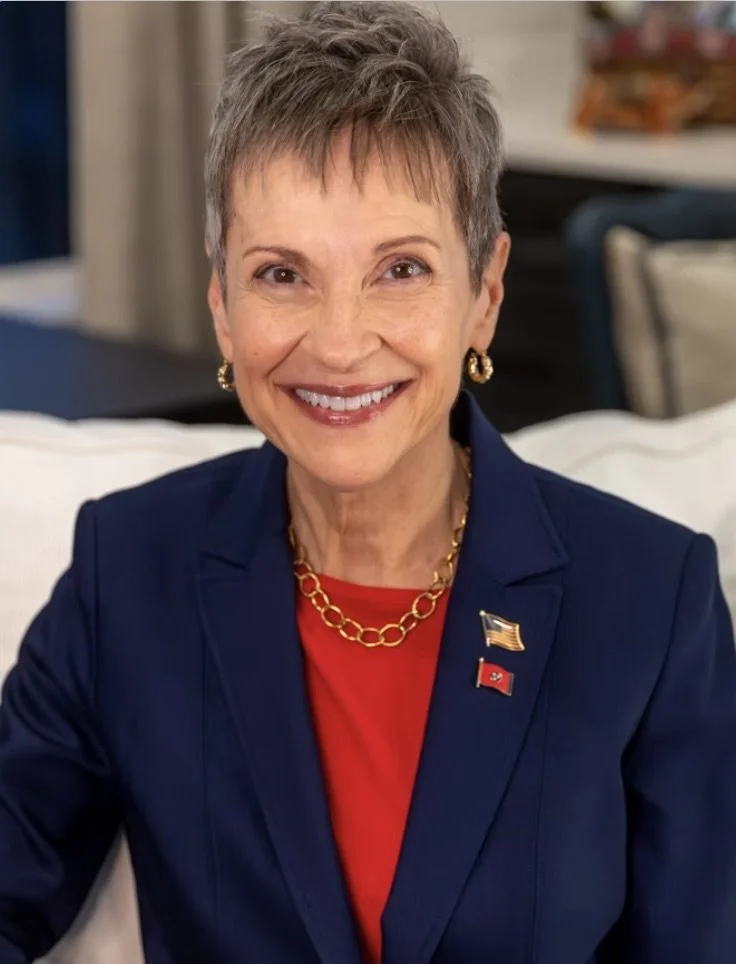Senator Johnson and Representative Reeves want to ensure voting remains convenient in county primaries. Why is their own county’s GOP chapter opposing them?
Senator Jack Johnson (left) and Representative Lee Reeves (right) (Photos by the Tennessee General Assembly)
Since 1937 Tennessee has required elections for state and federal offices like Governor and U.S. Senator to be held by a primary, but the same has not been true of partisan primaries for local elections like school boards and county commission.
Individual counties have the option of using caucuses or conventions instead, but only a handful of counties regularly do including Maury, Giles, Henry, and Chester.
Senator Jack Johnson, R-Franklin, and Representative Lee Reeves, R-Franklin, want to keep it that way. They’re sponsoring legislation that ensures every county that currently uses a primary for local partisan races, continues to do so. Under the proposal, counties that currently hold caucuses or conventions would not be required to switch to a primary, but if they voluntarily did, those counties couldn’t go back to using caucuses or conventions.
Senator Johnson made the case on the Senate floor Wednesday that the legislation is needed because without it, county parties could switch to a caucus or convention that requires voters to participate at a specific time and day, with no allowance for early voting. He says that could be a challenge for military members and law enforcement.
“What if your schedule doesn’t permit you to be there at that particular time? What if you’re one of these police officers that were in our gallery, and you have to work a shift that day and they set the caucus for a Tuesday evening at 6 o’clock and you have to work a shift,” asked Johnson. “It should be protected so that anyone who wishes to go vote in a primary for their party has the ability to do so.”
Retired Tennessee National Guard and U.S. Army veteran Rick Shepherd made a similar case to lawmakers in a House committee on Tuesday. Shepherd said both he, and the soldiers who served under him, have had to vote absentee or early multiple times because of deployments overseas and in support of domestic emergencies like Hurricane Helene.
That type of voting would not be possible with a caucus or convention.
“I never thought I would have have to come to my own state in my own country that I have dearly loved and fight to stop voter suppression. I see no way around that that is not what this is. For reasons that I do not understand there is a drive-by small loud group in Tennessee that wants to cancel local primary elections,” said Shepherd. “Disenfranchising the men and women serving in the United States Armed Forces by canceling any primary elections is dead wrong.”
Diane Chenard (Photo by the Williamson County Republican Party)
Notably, one of the most outspoken opponents of the bill is the GOP party from the home county of both sponsoring lawmakers. The Williamson County Republican Party has provided multiple posts on its Facebook page against the bill including a call to action for members to oppose it on Tuesday that stressed the importance of the county party’s control of elections, as opposed to voters.
“This legislation interferes with the Williamson County Republican Party’s ability to choose its candidates to represent Republicans in local elections, including critical roles like School Board and County Commissioners,” wrote the party.
That same day, Williamson County Republican Party Vice-Chair Diane Chenard spoke against the legislation during the House State and Local Government Committee meeting. Chenard told committee members she believes the impetus for the bill came from her county party’s leadership elections earlier this year, when members voted in multiple Republicans supporting a change to a caucus format.
“This bill fails to protect Republican voters from ongoing illegal crossover voting in primaries and vice-versa. To illustrate the magnitude of the problem, of the roughly 33 thousand votes cast in Williamson County’s March 2024 primary, nearly 4 thousand were cast by Democrats,” said Chenard.
Representative Reeves pushed back in that meeting, saying lawmakers have been discussing changes like this for many years to ensure all voters have a chance to vote.
“I know that there is current discussion around trying to disenfranchise voters in various counties across the state and you know, what happens when we propose a bill is we see a potential problem and something that needs to get fixed and we propose it in a bill,” said Reeves.
The legislation passed the Senate on a 27 to 3 vote Wednesday and could see a vote on the House floor as early as next week.



